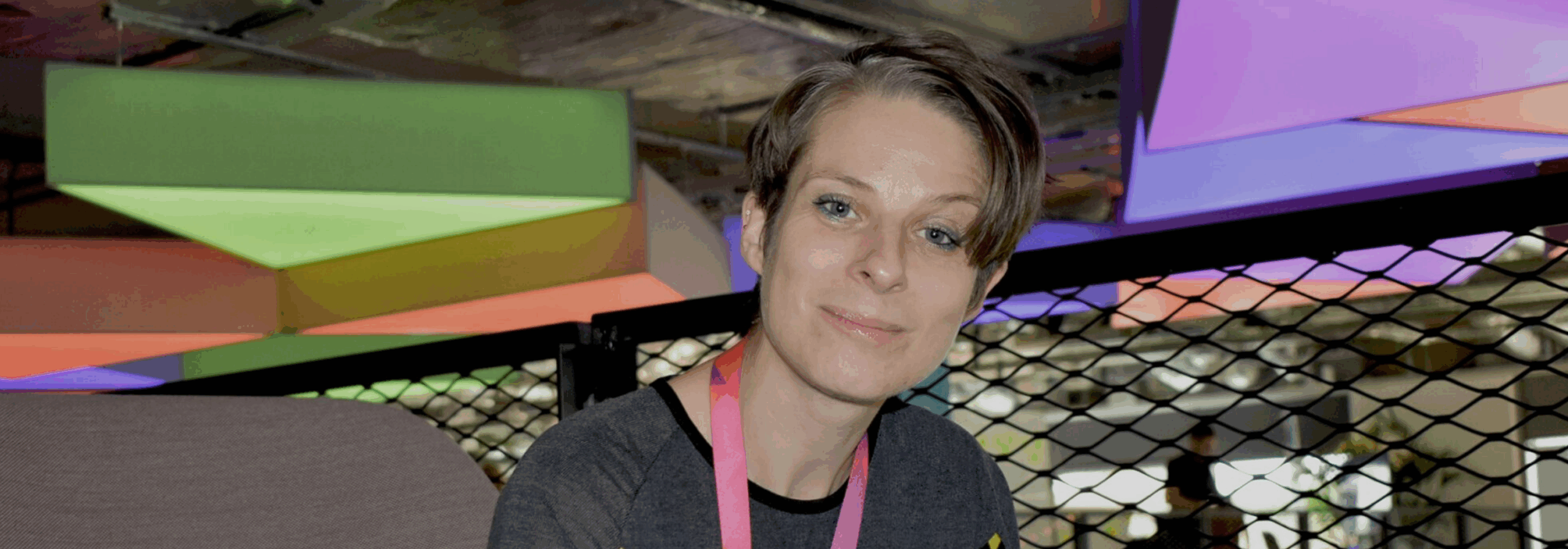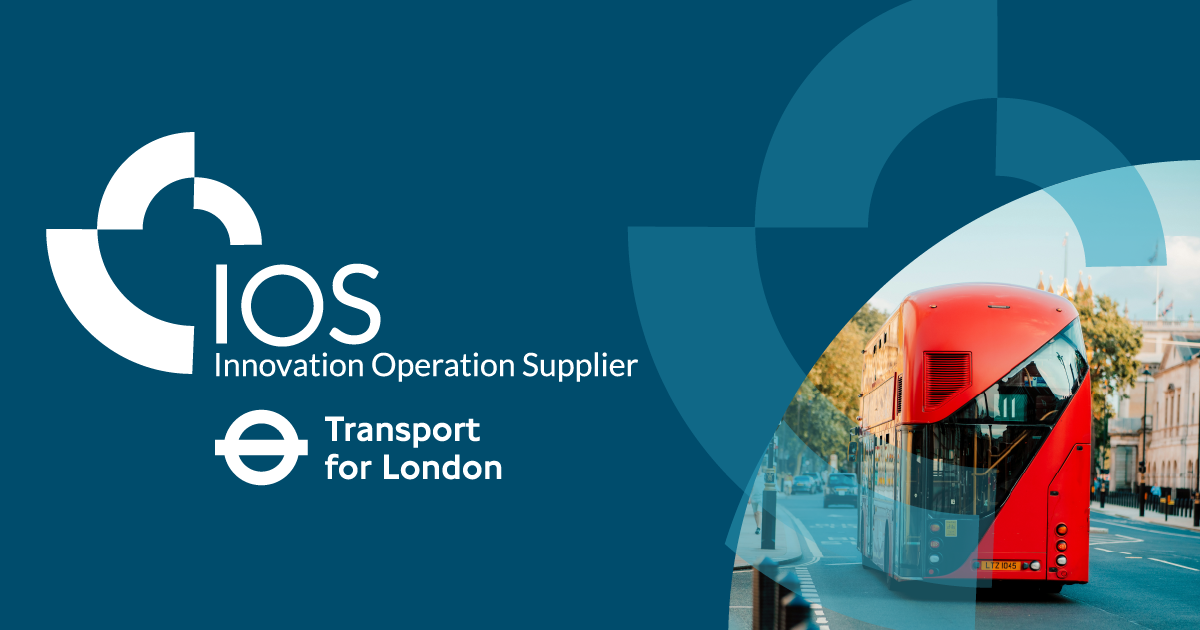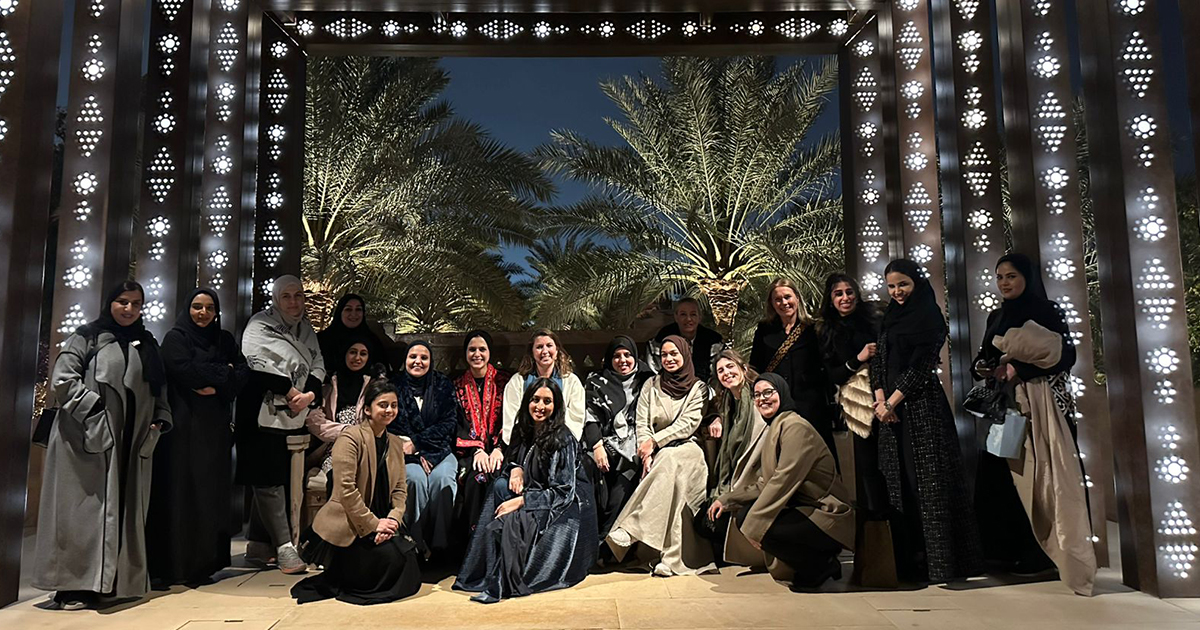Sci-fi writer Siobhan has had her work performed at Toynbee Studios, a theatre in Spitalfields, and published by Elsewhen Press in its anthology Existence is Elsewhen. She joined Plexal earlier this year as our writer in residence, which has seen her mingle with our community and work on a soon-to-be-revealed piece of fiction for Plexal.
We pinned her down to find out where she gets her inspiration from, what her favourite sci-fi references are and what she thinks is in store for the future: dystopia or utopia.
Hi Siobhan! First up we wanted to know: where does your inspiration comes from? With reality becoming crazier by the day, where do you get your best ideas from?
London is an endlessly fascinating city and I’m always absorbing what’s around me, whether it’s people watching or observing an ant walking across a leaf. It’s about always asking “what if?” and being curious.
You must have done some good people watching around Plexal. How has being here impacted on your work?
Plexal’s a great place to find out about new technology from people who are interested in the future and working out ways of making it different. And as a sci-fi writer I also spend a lot of time imagining how things might be in an alternative reality (be it the future, a different version of the present or even a yet-to-be-observed dimension), so it feels like a good fit.
Plexal members are an endless source of inspiration for the characters I’m developing too, whether it’s talking about the nature of free will in the context of machine learning with the Fellowship AI programers or getting into haptics after meeting the Valkyrie team.
You seem to throw yourself into the events taking place at Plexal too. What are some of the highlights?
It was great trying out mixed reality for the first time at the Virtual Reality Diversity Initiative workshop. I had already started thinking about my Kinetic Coach character after speaking to people at Plexal’s Women in Tech lunches but being in a virtual space and understanding the code behind it helped me develop the character even further.
The London Office for Rapid Cybersecurity Advancement (LORCA) launch in June also stands out. It showed how security, trust and privacy are taking on new meanings. The idea that we need to think differently about how we identify people and prove who they are is a fascinating one, and I’m working on a couple of fictional characters based on that.
Stepping away from real life for a second, we have to ask: what are some of your favourite pop culture references?
Movie-wise, 2001: A Space Odyssey’s got to be up there. I also love Silent Running: a film about a world where all botanical life has disappeared and an ecologist maintains a greenhouse on a space station to preserve a selection of plants. I like it because he’s helped by three of the best fictional robots of all time!
As for books, I often return to Holy Fire by Bruce Sterling because it has such prescient ideas about ageing and creativity. Published in 1996, it explores what it means to be post-human in a world of artifice, gerontocrats and virtuality. It’s worth reading for the description of the amazing edible city walls of Stuttgart alone.
And what’s your vision for our future: are you a tech optimist, or pessimist? Are we all set for dystopia, or utopia? And what will Britain look like decades from now?
Words have power and as a sci-fi writer I think it’s important to imagine a sustainable future that gives us a chance to be more playful, creative and kind. Technology is a tool that can be used to do this.
I think we’re set for neither dystopia or utopia but a kind of improtopia: an improvised place and space that acts as a sandbox for us to experiment in.
As for what Britain will look like, current trends in the rise of right-wing politics and extreme variations in climate could mean we use virtual reality and remote sensing to better understand and manage a more hostile environment.
I also think that a crunch on our resources will create a new focus on simplicity and efficiency, making us value the idea that less is more. We’ll need more effective systems for maintaining biodiversity and this will become the heart of everything. Meanwhile, food production and eating habits will change as much as telecommunications have in the last thirty years and things like medicine and fitness will be highly personalised. Transport will become more human-centric, with fewer (but more intelligent) vehicles on the road and more bikes.
Want to mingle with the likes of Siobhan and our other members? Why not learn more about our community or get a free day pass when you book a guided tour?


